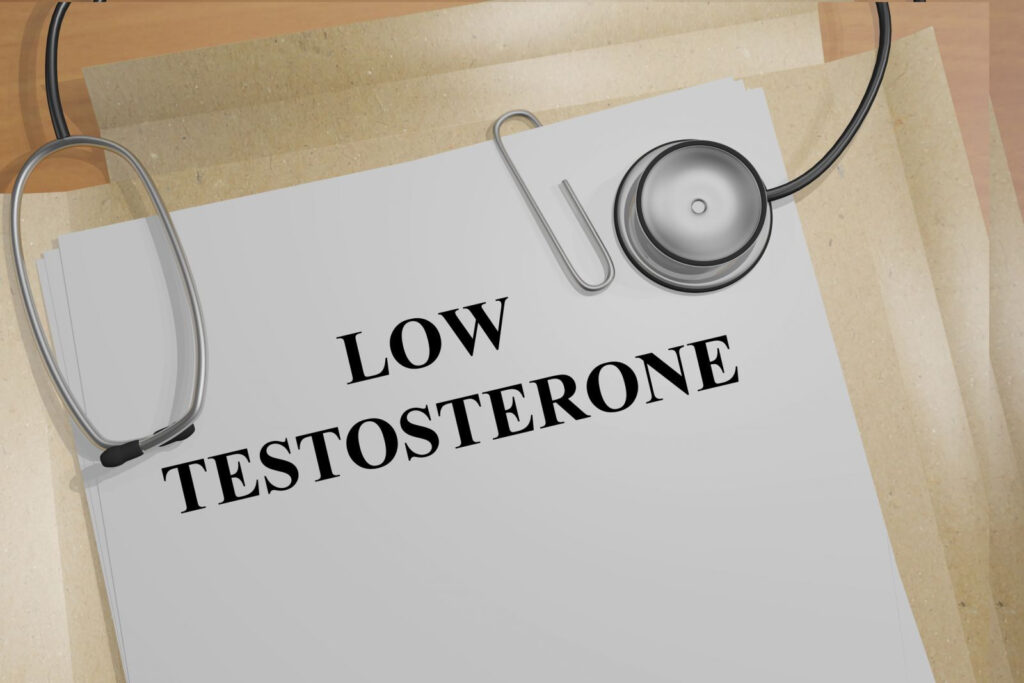Testosterone replacement therapy (TRT) is a common treatment for men with low testosterone levels. While TRT can improve symptoms such as fatigue, depression, and low libido, it raises concerns about potential side effects, particularly infertility.
This article explores the relationship between testosterone replacement therapy and infertility, delving into the mechanisms, risks, and alternative approaches to managing low testosterone.
What is Testosterone Replacement Therapy?
Testosterone replacement therapy aims to restore normal testosterone levels in men with hypogonadism, a condition in which the body produces insufficient testosterone. This therapy comes in various forms, including injections, patches, gels, and oral tablets.
Recommended: Can Taking Testosterone Make You Sterile?
TRT can significantly improve quality of life by alleviating symptoms associated with low testosterone, such as reduced energy, mood swings, and decreased sexual function.
How Does TRT Work?
TRT supplements the body with synthetic or bioidentical testosterone, increasing overall testosterone levels. This external supply helps mitigate the symptoms of low testosterone, but it also affects the body’s natural hormone production.
The pituitary gland, which regulates testosterone production, senses the increased hormone levels and reduces or halts the production of luteinizing hormone (LH) and follicle-stimulating hormone (FSH). These hormones are crucial for stimulating the testes to produce testosterone and sperm.

The Link Between Testosterone Replacement and Infertility
The primary mechanism by which TRT causes infertility is the suppression of LH and FSH production. Without sufficient levels of these hormones, the testes receive less stimulation to produce sperm, leading to a decrease in sperm production (spermatogenesis). This reduction can result in oligospermia (low sperm count) or azoospermia (absence of sperm), significantly impacting a man’s fertility.
Research consistently shows a strong correlation between TRT and reduced sperm production. A study published in the journal “Fertility and Sterility” found that men undergoing TRT had significantly lower sperm counts compared to those not receiving the therapy.
Recommended: What Causes Erectile Dysfunction in Your 50s?
Another study in “The Journal of Clinical Endocrinology & Metabolism” observed that the cessation of TRT can partially or fully restore sperm production in some men, but the recovery time and extent vary widely.
Assessing the Risks of Infertility with TRT
1. Short-Term vs. Long-Term Use
The risk of infertility increases with the duration of TRT. Short-term use might have a reversible effect on sperm production, whereas long-term use poses a greater risk of permanent infertility.
Men considering TRT should weigh the benefits of symptom relief against the potential impact on their fertility, especially if they plan to have children in the future.
2. Individual Variability
Not all men experience infertility with TRT. Factors such as age, baseline fertility, overall health, and the dosage and duration of therapy influence the degree of impact on sperm production. Consulting with a healthcare provider who specializes in male fertility can help individuals assess their specific risks.
Recommended: Can Boric Acid Kill Sperm?
Alternatives to Traditional TRT
1. Lifestyle Changes and Natural Boosters
Before opting for TRT, men with low testosterone levels can consider lifestyle changes and natural boosters. Regular exercise, a healthy diet, adequate sleep, and stress management can naturally enhance testosterone production. Supplements such as zinc, vitamin D, and ashwagandha have also shown potential in boosting testosterone levels.
2. Clomiphene Citrate and hCG Therapy
For men concerned about fertility, medications such as clomiphene citrate and human chorionic gonadotropin (hCG) offer alternative treatments. Clomiphene citrate stimulates the pituitary gland to produce more LH and FSH, thereby boosting natural testosterone production without suppressing sperm production. hCG therapy mimics LH, directly stimulating the testes to produce testosterone and sperm.
3. Selective Estrogen Receptor Modulators (SERMs)
SERMs like tamoxifen can also be used to treat low testosterone. These medications block estrogen receptors in the pituitary gland, leading to increased production of LH and FSH, similar to clomiphene citrate. This approach can raise testosterone levels while preserving or enhancing sperm production.

Making Informed Decisions
Men considering TRT should consult with both an endocrinologist and a fertility specialist. These professionals can provide a comprehensive evaluation of hormone levels, overall health, and fertility status. A personalized treatment plan that addresses both low testosterone and fertility concerns can then be developed.
Recommended: Top 6 Signs Of Poor Egg Quality You Should Know
Regular monitoring of testosterone levels, sperm count, and overall health is essential for men on TRT. Follow-up appointments with healthcare providers ensure that any adverse effects are promptly identified and managed. Adjustments to therapy can be made based on ongoing evaluations.
Conclusion
Testosterone replacement therapy offers significant benefits for men with low testosterone, including improving quality of life and alleviating distressing symptoms. However, it poses a notable risk to fertility, primarily through the suppression of natural hormone production required for sperm production.
Men must carefully consider these risks, especially if they wish to father children in the future. Exploring alternative treatments and making informed decisions with the guidance of healthcare specialists can help balance the benefits of TRT with the preservation of fertility.
